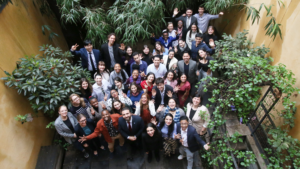 The plight of who should control the commanding heights of the economy has long troubled humanity. What would be more beneficial for mankind? A state-controlled economy or a market-driven one? Centuries of discourse have argued for and against both sides. But up until now, it is still, in my opinion, one of the prime predicaments of society. Scholars are still discussing the pros and cons and contextualizing each of the schema, flaws, and merits of globalization.
The plight of who should control the commanding heights of the economy has long troubled humanity. What would be more beneficial for mankind? A state-controlled economy or a market-driven one? Centuries of discourse have argued for and against both sides. But up until now, it is still, in my opinion, one of the prime predicaments of society. Scholars are still discussing the pros and cons and contextualizing each of the schema, flaws, and merits of globalization.
Given the inherent flaws of both systems (market economics and central planning), it begs us to question what the role of government should be, what they should sink their hands in and what can be left to the hand of the private sector. An economy wholly controlled by the state has no future. Neither is an economy wholly reliable on market.
But, the government still has the obligation of providing the basic social services for its people like education, health and some form of welfare for the disabled and unemployed. It has to provide a mechanism for people from the marginalized sector of society for a chance at vertical mobility in the socioeconomic spectrum.
The necessity of the state in the discourse of development isn’t up for questioning anymore. It is necessary. But, there is a need to redefine or reconstruct its role. In the Philippines, the GDP is steadily increasing but self-reported poverty is also increasing with it. Simple analogy would lead us to believe that if the economy is booming, it should be trickling down. This would mean that the development is inclusive and holistic. But it isn’t, and this where the state should come in to ensure equality and equity for access to opportunities. It should ensure that the benefits of economic growth can be felt in all levels of society through laws applicable to all. Democracy should be deepened and power decentralized to smaller function units like the local government. Some scholars propose increasing the participation of civil society in other political process like resource allocation (e.g. Porto Allegre participatory budgeting in Brazil).
By Nikki Botial, a former intern at WYA Asia Pacific office in Manila.







